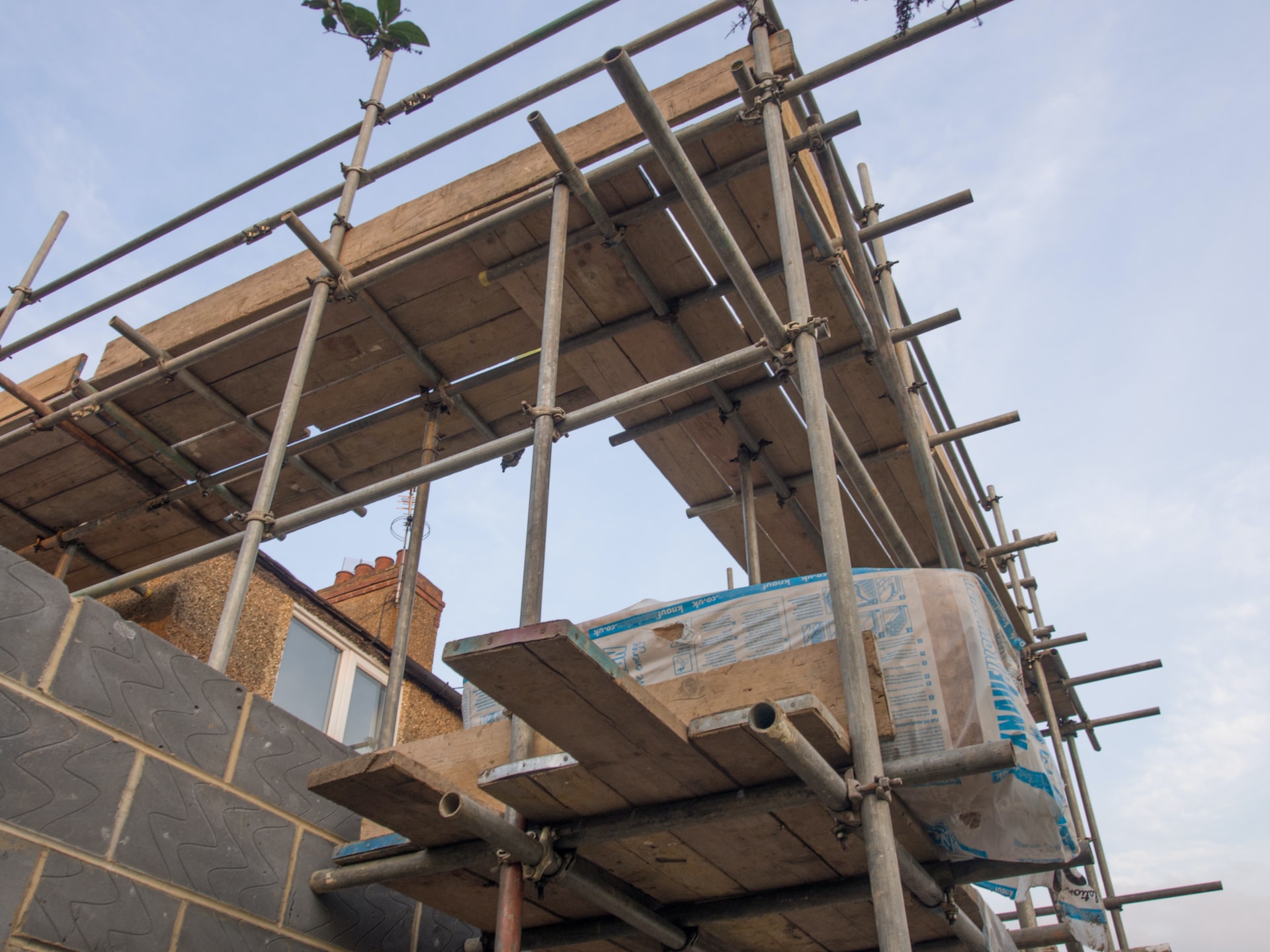Finding the perfect house that meets all your needs can be a challenging endeavor. Building a home from the ground up allows you to customize everything to meet your desires. However, construction can be expensive, like buying a house. Fortunately, you can build your dream home with a construction loan.
Unlike getting a traditional mortgage, the process of borrowing a construction loan is a bit different. We’ll walk you through everything you need to know about construction loans, why it may not be the best financing option for home renovation, and alternatives to consider.
What Is a Construction Loan and How Does It Work?
A construction loan is a short-term loan used to cover the costs of building a residential property. Construction loans can cover the purchase of land, design plans, building permits, sourcing building materials, and labor. You can also use this short-term financing to obtain contingency reserves if your project costs more than the anticipated budget or interest reserves if you want to avoid paying interest when the construction is underway.
Since construction loans are short-term, they’re considered highly risky and come with high interest rates. Unlike traditional mortgage loans, construction loans are not backed by collateral, making the application process more complex. Your lender will likely want to review your architectural designs and know the construction timeline.
If you meet the lender’s requirements and get approved for a loan, you will not receive the money as a lump sum. Rather, the lender will create a draw schedule that follows your project’s construction stages. During the construction process, the lender will send an inspector to check the status of the house over the various construction stages.
Construction loans work much like a line of credit. The draws are determined using the timeline provided when applying for the loan. You’ll often pay interest on the amount you draw until the construction is completed. Depending on the lender and the type of construction loan, you may have the choice to convert the funding into a mortgage loan after project completion.
If the construction to permanent loan doesn’t sound like a good option, you can apply for a separate mortgage to pay down your existing mortgage.
How Can You Use a Construction Loan to Renovate Your House?
Construction loans were essentially designed for people looking for a funding solution to build a residential property from scratch. However, homeowners with large renovation projects can also tap into this financing option. When you take out a construction loan, you won’t receive the payment in a lump sum like a traditional mortgage. Instead, the lender disburses the money in draws until project completion.
Should You Use a Construction Loan for Home Renovations?
Construction loans are generally not meant for home renovation, but homeowners can use this form of financing to cover costs associated with home remodeling projects. Many homeowners prefer this type of financing as it allows you to borrow using your home’s after-renovation value.
It’s not a good idea to use a construction loan for home renovations because the cons outweigh the pros. You’ll be forced to refinance at a higher rate and pay more in closing costs, and you may not get the funds immediately. For this reason, an alternative to a construction loan may be worth it.
Reasons Why Construction Loans May Not Be the Best for Renovations
Construction loans have noteworthy setbacks and may not be the best financing option for your home renovation for various reasons, including:
Refinancing to a Higher Rate
You’re lucky if you took a construction loan when interest rates were at all-time lows. Sadly, you may be forced to refinance your home, possibly at a higher rate, if you get a construction loan. Even a one percent increase could mean thousands of dollars in interest rate over the life of the loan, which is not worth it.
Paying More in the Long Run
Apart from refinancing, there are several other costs involved in construction loans. For example, this loan type has high lender fees compared to typical forms of financing, meaning you’ll pay more over time.
Paying More in Closing Costs
You’ll not only pay more in interest rates but also in closing costs. With the refinance requirement of a construction loan, you’ll need to pay closing costs on your new mortgage plus your renovation expenses instead of renovations alone.
For example, if you have a $300,000 mortgage and a renovation budget of $100,000, you’ll pay the closing costs of $400,000, not $100,000.
Not Getting Your Money Right Away
Because of the complex draw processes associated with construction loans, you may not get the borrowed amount immediately. This can affect both the homeowner and the general contractor and delay project completion plans if you want to get things done sooner.
Apart from the small draw amounts based on project milestones, the property is subject to regular inspections during construction. Plus, a lot of paperwork is involved.
Complicated Draw Process of Construction Loans
Construction loans have a complex draw process that may delay your project completion if you need the funds sooner. Also, as mentioned earlier, you won’t receive the funds in one lump sum but rather in draws based on the construction timeline.
No one wants the frustration that comes with new home construction loans. But unfortunately, for many people, construction loans are not the best financing option.







